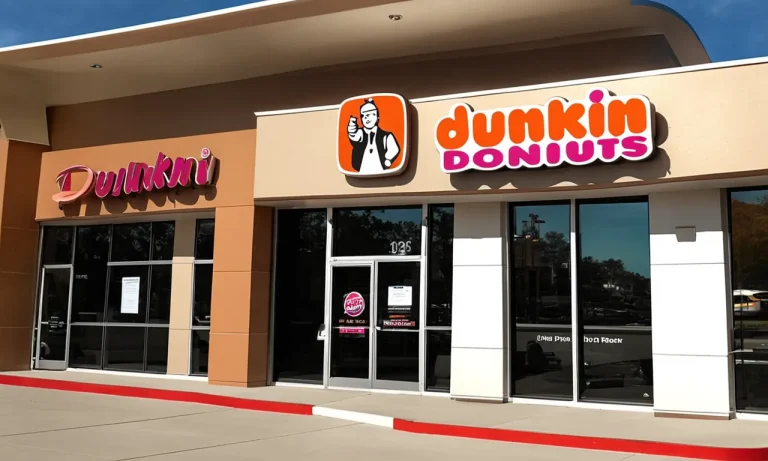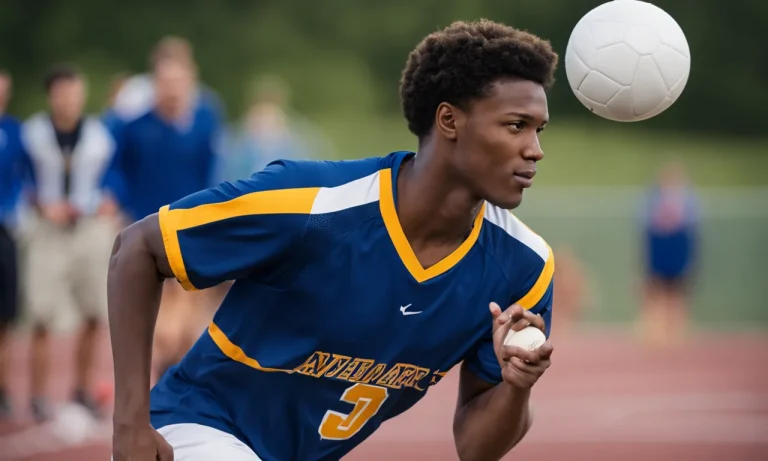Does Brit Floyd Pay Royalties To Pink Floyd?
Pink Floyd tribute bands have become increasingly popular over the years as fans look to relive the band’s legendary concerts. One of the most well-known Floyd tribute acts is Brit Floyd. Their spot-on performances have wowed audiences across the globe.
This has led many to wonder – does Brit Floyd pay royalties to Pink Floyd for performing their songs? We’ll take an in-depth look at the complex world of music licensing to find the answer.
If you’re short on time, here’s a quick answer to your question: No, Brit Floyd does not pay royalties directly to Pink Floyd. They obtain licenses that allow them to perform Pink Floyd songs legally.
How Tribute Bands Obtain Rights to Perform Songs
Tribute bands are a popular form of entertainment that allow fans to experience the music of their favorite artists live in concert.
One of the most renowned tribute bands is Brit Floyd, known for their remarkable renditions of Pink Floyd’s iconic songs. But how do tribute bands like Brit Floyd obtain the rights to perform these songs?
Public performance licenses
When tribute bands perform in venues such as concert halls, clubs, or theaters, they typically obtain public performance licenses. These licenses are necessary because they grant the band the legal right to perform copyrighted music publicly.
In the case of Brit Floyd, they secure licenses to perform Pink Floyd’s songs from the appropriate music licensing organizations, such as ASCAP or BMI.
Public performance licenses ensure that the original songwriters and composers receive royalties for the use of their music. This means that every time Brit Floyd performs a Pink Floyd song, a portion of the ticket sales goes towards compensating the original artists.
So, while tribute bands may not pay royalties directly to the original artists, they do contribute to their income through these licensing agreements.
Grand rights licenses for larger productions
For tribute bands that put on larger productions, such as theatrical performances or multimedia shows, they may need to obtain grand rights licenses.
Grand rights licenses allow the band to use the music and lyrics in a more extensive manner, incorporating them into a larger production that goes beyond a typical concert experience.
These licenses are typically obtained directly from the copyright holders, which may include the original artists or their estates. The process of obtaining grand rights licenses can be more complex and may involve negotiations and agreements between the tribute band and the copyright holders.
It’s important to note that the specifics of obtaining rights can vary depending on the country and the individual circumstances. Tribute bands often work closely with legal professionals specializing in music licensing to ensure they are compliant with the necessary regulations.
So, the next time you attend a Brit Floyd concert or any other tribute band performance, know that they have gone through the proper channels to obtain the rights to perform the songs you love. While they may not pay royalties directly to the original artists, their public performance licenses and grand rights licenses ensure that the music creators are properly compensated for their work.
Do Bands Pay Royalties to Original Artists?
Venues pay license fees, not bands
When it comes to live performances, it is not the responsibility of the bands themselves to pay royalties to the original artists. Instead, it is the venues that typically bear this responsibility.
Venues such as concert halls, stadiums, and theaters are required to obtain licenses from performance rights organizations like ASCAP, BMI, or SESAC.
These licenses allow the venues to host live performances and legally play copyrighted music. The fees collected from the venues are then distributed to the original artists as royalties.
So, while bands like Brit Floyd might be performing the music of Pink Floyd, it is the responsibility of the venue to ensure that the necessary licenses and royalties are paid.
Bands must buy rights to adapt music for performances
However, it is important to note that bands do have to obtain the rights to adapt and perform the music of the original artists. This means that bands like Brit Floyd, who specialize in performing the music of Pink Floyd, must obtain the necessary licenses and permissions from the copyright holders of Pink Floyd’s music.
These licenses allow the bands to adapt the music for their performances without facing legal repercussions. Without obtaining the rights, bands run the risk of facing copyright infringement claims. So, while bands may not directly pay royalties to the original artists, they do have to adhere to certain legal requirements to perform their music.
It is worth mentioning that the specific details of royalty payments and licensing agreements can vary depending on the bands and the original artists involved. Different bands and artists may negotiate different terms and agreements, so it is always important to research and understand the specific legalities of each situation.
Licensing Options for Tribute Bands
When it comes to tribute bands like Brit Floyd, one common question that arises is whether they need to pay royalties to the original band they are paying tribute to, in this case, Pink Floyd.
The answer to this question lies in the licensing options available for tribute bands.
Obtaining blanket licenses through PPL and PRS
One way for tribute bands to ensure they are legally covered is by obtaining blanket licenses through organizations like Phonographic Performance Limited (PPL) and Performing Rights Society (PRS). These organizations collect and distribute royalties on behalf of artists and music publishers.
PPL provides licenses for the public performance, broadcast, and streaming of recorded music, while PRS focuses on the public performance and communication to the public of musical compositions.
By obtaining these licenses, tribute bands can ensure that they are paying the necessary royalties for the music they perform.
It’s important to note that blanket licenses obtained through PPL and PRS cover a wide range of music, not just the songs of the band they are paying tribute to. This means that tribute bands will need to pay royalties for all the songs they perform, regardless of the original artist.
Direct licensing from music publishers
In addition to obtaining blanket licenses, tribute bands also have the option of directly licensing the music they perform from the music publishers. This allows them to negotiate specific agreements and royalties with the publishers of the songs they are performing.
Direct licensing can be a more flexible option for tribute bands, as they can tailor the licensing agreements to their specific needs and performances. However, it can also be a more time-consuming and expensive process, as they will need to negotiate with multiple music publishers.
One important thing to keep in mind is that each country may have different licensing regulations and organizations. It’s essential for tribute bands to research and comply with the specific licensing requirements of the countries they perform in.
Brit Floyd’s Approach to Licensing
Partnership with production company for licensing
When it comes to licensing, Brit Floyd takes a comprehensive approach to ensure that they stay within legal boundaries. They have formed a partnership with a reputable production company that helps them navigate the complex world of licensing. This partnership allows them to obtain the necessary permissions and pay royalties to the rightful owners of the Pink Floyd catalog.
This collaboration ensures that Brit Floyd can continue to perform their shows without any legal issues. It also demonstrates their commitment to respecting the intellectual property rights of Pink Floyd, who have created some of the most iconic music in rock history.
Focus on recreating experience vs. adaptation
Brit Floyd’s approach to licensing goes beyond simply adapting Pink Floyd’s music for their performances.
They strive to recreate the entire experience of a Pink Floyd concert, from the visual effects to the stage setup and even the sound engineering. This attention to detail allows fans to immerse themselves in the world of Pink Floyd and relive the magic of their live shows.
By focusing on recreating the experience rather than adapting the music, Brit Floyd is able to capture the essence of what made Pink Floyd’s concerts so legendary. This dedication to authenticity has earned them a reputation as one of the top tribute bands in the world.
According to britfloyd.com, Brit Floyd is proud to be authorized by Pink Floyd’s management and their licensing partners to perform their incredible shows.
They work closely with the original Pink Floyd team to ensure that every aspect of their performances meets the highest standards.
It’s important to note that Brit Floyd pays royalties to Pink Floyd for the use of their music. This ensures that the original creators are properly compensated for their work and allows them to continue making great music for years to come.
Do Tribute Bands Help or Hurt Original Artists?
Tribute bands have become increasingly popular in recent years, with fans flocking to concerts to relive the magic of their favorite bands.
One of the most well-known tribute bands is Brit Floyd, which pays homage to the legendary rock band Pink Floyd. However, this raises an interesting question: do tribute bands like Brit Floyd pay royalties to the original artists?
Increased exposure and catalog sales
Tribute bands can actually be beneficial to original artists in several ways.
Firstly, they provide increased exposure for the music and legacy of the original band. When tribute bands perform live shows, they introduce the music to new audiences who may not have been familiar with it before. This can lead to a surge in interest and sales of the original band’s albums and merchandise.
Furthermore, tribute bands often create a sense of nostalgia for fans who have grown up listening to the original band’s music. By faithfully recreating the sound and atmosphere of the original band’s performances, tribute bands allow fans to relive the experience of seeing their favorite band live.
This emotional connection can strengthen the bond between fans and the original artists, leading to increased loyalty and support.
Concerns over quality control
However, there are also concerns surrounding tribute bands, particularly when it comes to quality control.
While some tribute bands go to great lengths to accurately reproduce the music and performances of the original artists, others may fall short in terms of talent and authenticity. This can lead to a diluted experience for fans and potentially tarnish the reputation of the original band.
Some argue that tribute bands should be held to a higher standard and required to obtain licenses or pay royalties to the original artists. This would ensure that only the most talented and dedicated tribute bands are allowed to perform, maintaining the integrity of the original music and giving credit where credit is due.
On the other hand, some believe that tribute bands are a form of artistic expression and should not be restricted by licensing or royalty fees. They argue that tribute bands provide a platform for talented musicians to showcase their skills and pay homage to the music that has inspired them.
Conclusion
In summary, while Brit Floyd does not directly pay royalties to Pink Floyd, they obtain all necessary licenses to perform the band’s music legally. Their popularity speaks to the timeless appeal of Pink Floyd’s iconic catalog.
While opinions vary on how tribute acts impact the original artists, Brit Floyd’s productions celebrate the music and provide fans with an authentic concert experience.










